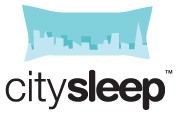In an aggressively competitive industry, hoteliers must find a way to delight their customers whilst remaining profitable. Upselling is one way in which this can work. When you are versed in what your customers seek and desire, upselling does not become a ‘hard sell’ but more of an expansion of your offering. The hospitality sector can use many ways to upsell goods and services:
- Excellent Communication. HappyBooking boasts a function that allows you to send guests SMS and email before their arrival. Keeping in touch with your guests before they arrive is good practice and enables you to potentially find out more details about the purpose of their stay and their lifestyle. Knowing your customer’s preferences cuts down some of the work of upselling
- Customer Service at Reception. Guests may not be aware of all upgrades/options available, if a third party such as a travel agent has booked. Staff on reception know the exact inventory on the day of check-in, enabling them to be specific about what is on offer in terms of rooms, suites, views, food, drink, leisure activities etc. Check-in is an optimal time to upsell depending on the guest’s circumstances, and if staff are tuned into the guests’ needs, they can offer extra services which the guest may not have considered
- Add-ons. Take the opportunity to offer add-ons. An example would be a weekend guest who is an avid golfer, but hasn’t booked any golfing sessions as they were unaware of any facilities. You take the time to mention that golf is available on that particular weekend, at half the normal price. Another example would be an engaged couple reserving a standard room. You could inform them of the deluxe rooms which feature a hot tub, a four poster bed, and include a complimentary bottle of champagne and chocolates
- Ask questions. Find out what the guest wants from their stay. This information may present the opportunity to upsell a room upgrade, or perhaps get them to purchase spa treatments and other leisure services the hotel has on offer
- Early arrivals. There will be many instances when guests arrive early. If a guest arrives at 12 noon but is told their room isn’t available until 4 p.m., the front desk could tell them that for an extra amount, an upgraded room is available immediately and comes with complimentary wine or a voucher for spa treatment. This upsell technique requires little effort, as guests often want to go to their room immediately
- Present upgraded rooms, restaurant meals, services etc. as a unique opportunity. For instance, you could mention that there has been a last minute cancellation for one of your better rooms. Alternatively, you could mention the introduction of themed rooms and would love customer feedback. Paint a happy picture of the guest being the first to use the room and what an experience that will be. Keep the mood light, sociable, and warm. Another example would be reception informing the guest that a new chef who’d won awards has recently started working in the kitchen and will be preparing his signature dish all week. This could encourage the guest to try out the restaurant, if they haven’t booked with meals already included
- Additional sales techniques. When a guest has booked in advance, and already paid the room rate, they can be informed that for only a small amount extra they can be offered a better room. Give the benefits of the better room. Make sure the benefits are of interest to the guest
- Perceived value. Don’t just mention rooms with ‘a view’. If you wish to upsell to a better room, be specific about the actual view on offer. If the hotel is next to a lake, or a significant landmark, make sure that you point this out to the guest
These are just a handful of options that may encourage your guests to opt for something over and above what they have reserved. Upselling can have a significant impact on your customer’s experience and ultimately, your profit margins when used with the right approach. By being genuine and sincere about wanting to provide the best experience for your guest, upselling becomes a natural process that benefits all parties.



